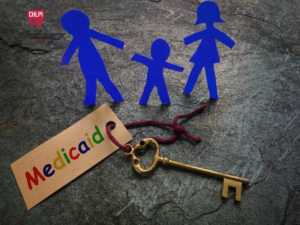Originally posted on POZ on 4/8/22.
AIDSWatch 2022 ended Wednesday after three days of virtual plenaries, workshops and meetings with congressional offices.
AIDSWatch is the largest national, constituent-led HIV advocacy event in the country.
Assistant Health Secretary Rachel Levine delivered the keynote address Monday. She spoke about the update to the National HIV/AIDS Strategy released by President Biden on last year’s World AIDS Day, Dec. 1, 2021. The strategy applies a whole-of-society approach, and provides “federal and nonfederal stakeholders across the nation with a road map to accelerate efforts to end the HIV epidemic in the United States by 2030,” she said.
She said this approach is necessary because federal action alone is not enough to end the epidemic. “We need all of you, and the organizations, individuals and programs you represent to also innovate and collaborate in ways aligned with the strategy,” she said.
Speaking about President Biden’s proposed budget for fiscal year 2023, which was released last week, Levine touted Biden’s request to establish a new program focused on pre-exposure prophylaxis, or PrEP, a medication that prevents HIV. The proposed program would provide PrEP for free to uninsured and underinsured individuals and people who use Medicaid. Most private health insurance is already required to do this.
Levine suggested that advocates push their members of Congress to fund this and other proposed initiatives. She encouraged “you and all of your members to reach out to your representatives in Congress, to your senators, about the importance of these initiatives, about the importance of the funding for these initiatives.”
Below, watch “AIDWatch 2022 Day 2: HIV Policy Issues in Focus”:
Meeting with members of Congress and their staff has long been a part of AIDSWatch. Indeed, advocates from 34 states held meetings Wednesday with more than 135 offices on Capitol Hill. The advocates pushed for policies in three areas: supporting the health of people living with and vulnerable to HIV, addressing structural and institutional racism and other inequities, and increasing funding for programs that address the HIV, STD and overdose epidemics.
Robert Greenwald, director of the Treatment Access Expansion Project/Center for Health Law and Policy Innovation, pointed attendees toward the expected expiration of the public health emergency declaration. This declaration was made in response to the COVID-19 pandemic and allowed for policy changes and increased funding to vulnerable and low-income communities.
The declaration is expected to expire late spring or early summer. The end of the emergency means that much of the increased funding and flexibility will end too. An estimated 16 million people are likely to lose access to Medicaid.
Greenwald said, “We need to tell our members of Congress to pass a reconciliation bill that includes policies that will protect the access and equity gains that have been accomplished during COVID. We need our Members of Congress to step up and protect all Americans from the cliff that is coming our way.”
Meanwhile, Martha Cameron, from the US PLHV Caucus, urged participants to “make sure you talk about quality and gender-affirming care from providers that are well-versed on their patients’ options and rights. Make sure you talk about expanding HIV prevention and coverage of PrEP. Make sure you talk about protecting our rights to vote. Make sure you talk about reforming and repealing HIV criminalization laws. Make sure you talk about sexual and reproductive health.”
Carl Baloney Jr., AIDS United’s vice president and chief advocacy officer, told attendees AIDSWatch advocacy was critical. “Together,” he said, “We absolutely have the tools necessary to end the HIV epidemic. We have overcome odds that have seemed insurmountable before. Together we can show the world what an HIV advocate can do, and more, what we can do together. Together, we can end the HIV epidemic.”
AIDSWatch is organized by AIDS United, the Treatment Access Expansion Project, and the US PLHIV Caucus. It is the largest federal HIV advocacy event of its kind.
The first day’s plenary, which includes remarks from Levine, are on AIDS United’s YouTube channel. Also available on YouTube are Tuesday’s workshops on ensuring holistic and quality care for people living with HIV, addressing structural and institutional racism and other inequities, and Congress’ role in funding efforts to end the HIV epidemic.


